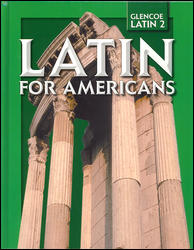1.
A) tea B) tin C) tar D) wool 2.
A) A.D. 54 and 55B) A.D. 42 and 43C) 44 and 43 B.C. D) 55 and 54 B.C. 3.
A) Deal B) Dover C) Dunkirk D) Devon 4.
A) Augustus B) Claudius C) Nero D) Tiberius 5.
A) A.D. 9B) A.D. 34C) A.D. 43D) A.D. 556.
A) made no attempt at B) failed in the attempt at C) thought it would be quick work to make D) didn't think hostile Gallic tribes would interfere with his plans for 7.
A) divided into seven countries B) unified with Carthage C) pacified and Romanized D) granted independence 8.
A) efficient drainage, adequate water, and bathing facilities B) stone and brick buildings C) A and B D) none of the above 9.
A) underwater combat B) frogmen engage in surveillance C) pitched naval battle D) land troops debark from ships 10.
A) a minimum of six boats in the water B) the confidence of the enemy C) secure lines of communication D) none of the above 11.
A) Morini B) Venetans C) North Africans D) Germans 12.
A) the enemy's location B) the enemy's chain of command C) the enemy's landing craft D) global weather conditions 13.
A) to determine the most favorable landing spots, tides, and weather B) to deceive the enemy C) A and B D) none of the above 14.
A) securing lines of communication B) intelligence C) command of the sea in the combat zone D) none of the above 15.
A) made elaborate charts that are in museums today B) foretold disaster C) killed the traders he interviewed D) did not disembark 16.
A) terrain made the intended landfall defendable B) the Britons refused to fight C) he needed to provision the ships D) the intended landfall was too broad and smoothly sloping 17.
A) gave up B) waited C) improvised D) let them drown 18.
A) North Sea B) Atlantic Ocean C) English Channel D) Mediterranean Sea 19.
A) more troops, a larger fleet, and special landing craft B) overwhelming opposition from the natives C) ineffective remaining cavalry D) excellent weather before departure 20.
A) secured the beachhead B) doubled the size of the convoy C) deserted D) and his cavalry drove the island's defenders inland





